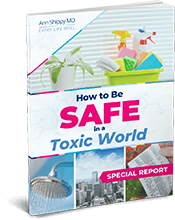

Nutraceutical Guide for Immune Support
Download my Essential Immune Support Protocol
Essential Immune Support Guide
Join my newsletter and receive my Essential Immune Support Protocol – a 16 page guide to the fundamental nutraceuticals for optimal immune support.

Nutraceuticals may help to optimize nutrient status and support healthy immune function.
Good nutrition is essential for the body’s immune system to function optimally.
However, most diets are deficient in the vitamins and minerals needed for a strong immune defense. In other words, most diets need a little help.
Supplements or nutraceuticals encourage a boost in nutrient status to positively influence immune function.
For those that are at higher risk of infection due to age or an underlying condition, specific supplements may be even more important in providing an additional layer of protection.
What role do supplements play in supporting the immune system?
Your body knows how to fight a virus. The immune system is a complex system of organs, tissues and cells throughout the body that communicate and work together to protect you from what is not you.
Your immune system includes the skin, mucous membranes, and the digestive system that create barriers to keep pathogens out while allowing nutrients in. It also includes innate immunity, which is your general defense against invaders and acquired immunity where your body creates antibodies to a specific microbe. All of this requires various nutrients, in good supply, so that each part of the system can do its job effectively.
Eating a healthy, nutrient dense diet is a great start, however, most diets are lacking the vitamins and minerals necessary to reach optimal status.
Bottom Line: Most of us need more of many nutrients. Using high quality supplements is a great way to cover your bases and improve the structure and function of systems throughout the body.
Many clinical studies are being done on the roles that these compounds have on preventing or reducing the impact of infection. Based on the research available, here is a list of supplements that may be useful in the prevention as well as potentially inhibiting the replication of this virus.
Recommendations
Zinc
Zinc is a critical nutrient for the immune system, and one that those most at risk for infection, including the elderly, tend to be deficient in.
Zinc functions in both the innate (first line of defense) and adaptive immune systems. It even suppresses viral attachment, playing a role in fighting respiratory infections. For these reasons, zinc is a key player in the protocol used in viral treatment.
As we age, zinc status tends to go down for a variety of factors including not eating enough zinc-rich foods like grass-fed beef, oysters and pumpkin seeds.
In addition, stomach acid tends to decline with age making it harder to digest protein and extract the minerals from these foods.
Did you know that zinc also plays a role in our sense of taste? When we are deficient in zinc we can’t taste our food as well and might go for more salty, sweet or processed options.
Interestingly, a loss of taste and smell is a documented symptom of the coronavirus and in some cases is the first, or only, sign of the disease.
Vitamin D
Vitamin D is often thought of in terms of bone health, but it is also critically important for the immune system to be able to do its job.
Some preliminary research makes the link between low vitamin D levels and the severity of infection.
Lower vitamin D levels are also linked to an increased susceptibility to infection and higher levels of Vitamin D may protect against those with auto-immune diseases.
The standard vitamin D recommendations (600IU per day) are woefully low for maintaining optimal blood levels between 50 and 80 ng/mL, the recommended levels for prevention of infection and complications.
The best course of action is to have your vitamin D levels checked every year and adjust supplementation accordingly.
In absence of testing, I suggest following the Institute for Functional Medicine recommendations and supplementing with 5000 IU per day.
Vitamin C
Vitamin C is a powerful antioxidant with anti-inflammatory and immune supportive properties. It contributes to immune defense by supporting various cellular functions of the immune system.
The coronavirus and other severe acute respiratory illnesses increase oxidative stress in the body which can lead to cellular and tissue damage. High-doses of vitamin C have been shown to be a safe, effective, and valuable therapeutic agent for respiratory infections.
Since this essential vitamin is not synthesized in the body we either need to ingest from food, or take as a supplement.
Quercetin
Quercetin is a flavonoid found in a variety of foods (including the herbs cilantro and dill as well as onions, kale, cranberries, and capers). It is also a natural zinc ionophore.
Zinc-ionophores transport the zinc in and out of the cell and can increase the effects of zinc in the cell.
It is well recognized that zinc is an essential trace element, influencing growth and affecting the development and integrity of the immune system, and that severe zinc deficiency depresses immune function.
Omegas
Omega-3 fatty acids are required for a number of body functions, from proper blood flow to brain development.
These long-chain fatty acids are integral components of tissues and organ systems throughout the body, including the heart, skin, joints, eyes and immune system.
Recent research suggests that EPA and DHA supplementation is potentially beneficial in managing inflammation associated with infection.
Probiotics
The microbiome is a key factor in building immune resilience and an imbalance in your gut is associated with developing inappropriate immune responses.
Gut issues are often one of the root causes to symptoms and disease, including immune diseases.
Probiotics support nutrient absorption, help maintain a healthy balance of organisms in the intestinal tract, and support immune function.
Probiotics help to restore gut health and microbial balance, which in turn fosters the foundation for resilient immunity.
Reference:
Resveratrol
Resveratrol is a powerful antioxidant and anti-inflammatory nutraceutical with antiviral and antimicrobial properties.
Resveratrol has been studied for its therapeutic potential against viruses that are responsible for severe respiratory infections, pneumonia, and viruses.
Resveratrol’s anti-inflammatory benefits may be potentially valuable to the severe virus-associated complications that are related to the overactivation of the host-immune response, known as the cytokine storm.
Curcumin
A review of numerous studies confirm how curcumin may inhibit a number of different molecules that play a role in inflammation.
Curcumin supports immune function, intestinal health, detoxification, healthy aging, mental health, joint health, cardiovascular health and pain management.
It’s also an important antioxidant compound that fights free radicals throughout the body.
The liposomal form offers greatest absorption and bioavailability.
Nitric Oxide
Nitric oxide (NO) is an antimicrobial molecule with key roles in pulmonary vascular function in the context of viral infections and other pulmonary diseases.
Nitric oxide also plays a key role in regulating inflammation and can help maintain normal blood pressure as well as cardiovascular health.
Low nitric oxide levels occur as we age or with exposures to oxidative stress, which can contribute to lung and respiratory diseases.
Glutathione
Glutathione is the body’s master antioxidant, important for protecting cells from the damage caused by viruses and other infections.
Glutathione also plays a key role in detoxification and immune health. Glutathione deficiency has been linked to serious illness from infection. Glutathione therapy is a potentially beneficial treatment during the illness and throughout recovery.
Internally, I recommend liposomal glutathione for the best bioavailability. Glutathione can also be nebulized for direct effect on the lungs.
To amplify the effect of glutathione, build your sulfur pool by eating at least 1 serving of cruciferous veggies daily such as broccoli, arugula, cabbage or cauliflower.
Magnesium
Magnesium is a truly magical mineral and helps facilitate over 300 chemical reactions in the body. Magnesium supports cardiovascular health, muscles, nerves, bones, mood, brain health and metabolism.
Based on magnesium’s many functions, it plays an important role in prevention and treatment of many diseases. Low levels of magnesium have been also associated with a number of chronic diseases, such as Alzheimer’s disease, insulin resistance and type-2 diabetes mellitus, hypertension, and cardiovascular disease.
Other Vitamins
Botanical extracts like black elderberry, astragalus, echinacea, and andrographis, have all been used traditionally for their clinically effective immune- modulating properties. Vitamin A is another great vitamin that supports the immune system by stimulating white blood cell function and increasing antibody response.
Maintaining good vitamin B6 or (pantothenic acid) levles also supports immune system energy, thymic function and healthy white blood cell levels.
To download Dr. Shippy’s dosing protocol for her
Essentials Immune Support Supplements
A comprehensive program to help you build a strong immune system and take control of your health.
By signing up you will also receive information on functional medicine research and resources, health tips, recipes and special offers.









